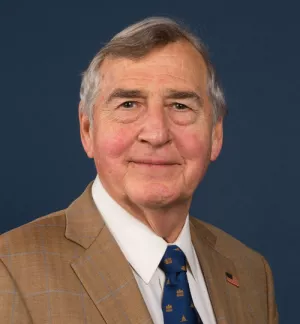CAMBRIDGE , Massachusetts The recent report on global security released by a high-level UN panel identified seven principal threats, from terrorism and poverty to environmental degradation. Among these, though, the panel gives primacy of place to nuclear Armageddon.
The entire nonproliferation regime is now at risk because of withdrawals, a lack of compliance and new international threats, the report notes. It warns that "we are approaching a point at which the erosion of the nonproliferation regime could become irreversible and result in a cascade of proliferation."
Without naming names, the report points to two countries whose actions threaten to collapse - or explode - the nonproliferation regime.
One of them, Iran, recently agreed to suspend, but not end, its nuclear programs. When this temporary agreement predictably breaks down, as a similar agreement did last year, Iran will resume its rush to complete facilities for enriching uranium and reprocessing plutonium. When completed, Iran will have crossed the last policeable line between it and nuclear weapons.
If Iran goes nuclear, Egypt will follow, then Saudi Arabia (more likely buying than making) and possibly Syria. Contemplate the consequences of such a nuclear arms race for Israel's security and the stability of energy supplies.
The other prime offender, North Korea, will soon finish reprocessing the 8,000 spent fuel rods previously frozen and monitored at Yongbyon, yielding enough plutonium for six bombs. North Korea will then be poised to conduct a nuclear test, declare itself nuclear and complete construction of facilities to produce a dozen additional bombs annually.
If North Korea gains forced entry into the nuclear club, Japan and South Korea will not be far behind. Taiwan will certainly explore its nuclear options. Such developments will destabilize Northeast Asia and intensify the risk of one state pre-emptively attacking another. Even more dangerously, North Korea could sell nuclear weapons to eager buyers like Osama bin Laden.
How can this dark future be prevented? The UN panel usefully recommends an extended moratorium on constructing reprocessing and enrichment facilities, a guarantee from Security Council members to defend nonnuclear states if attacked by a nuclear-armed opponent, and faster disarmament by nuclear powers. While these recommendations represent useful steps, their logic alone is unlikely to affect behavior in Iran and North Korea.
The governments of the major powers, beginning with the United States, must address the urgent nuclear danger today. A comprehensive strategy for preventing nuclear terrorism should be organized under a doctrine of Three No's: no loose nukes, no new nascent nukes and no new nuclear-weapons states.
The first requires securing all nuclear weapons and weapons-usable material, on the fastest possible timetable. Locking up valuable or dangerous items is something human beings know how to do. The United States and Russia should jointly develop a standard, act at once to secure their own materials and persuade other states' leaders to follow suit.
"No new nascent nukes" means no new national capabilities to enrich uranium or reprocess plutonium. The UN panel's recommendation of a fissile cutoff is a start, but it must be coupled with intrusive inspections of suspected nuclear sites and enforcement mechanisms. The crucial challenge to this principle today is Iran. Preventing Iranian completion of its nuclear infrastructure will require a combination of benefits and credible threats to persuade Tehran to accept a grand bargain for denuclearization.
"No new nuclear-weapons states" draws a line under the current eight nuclear powers and says unambiguously: "No more." The immediate test of this principle is North Korea. To prevent the world's most promiscuous supplier of missiles from becoming a Nukes "R" Us for terrorists, a "no new nuclear-weapons states" strategy will require both carrots and sticks, including a credible military threat to Kim Jong Il's nuclear facilities. The great powers share real national interests here, since each fears nuclear weapons in the hands of terrorists, whether they are al Qaeda or Chinese separatists.
Responding to the report, Secretary General Kofi Annan recommended that the international community debate these recommendations at the special summit next September. Yet avoiding the cascade about which the panel warns requires urgent actions now.
(Graham Allison is director of the Belfer Center for Science and International Affairs at Harvard University’s Kennedy School of Government.)
Allison, Graham. “A Cascade of Nuclear Proliferation.” International Herald Tribune, December 17, 2004





